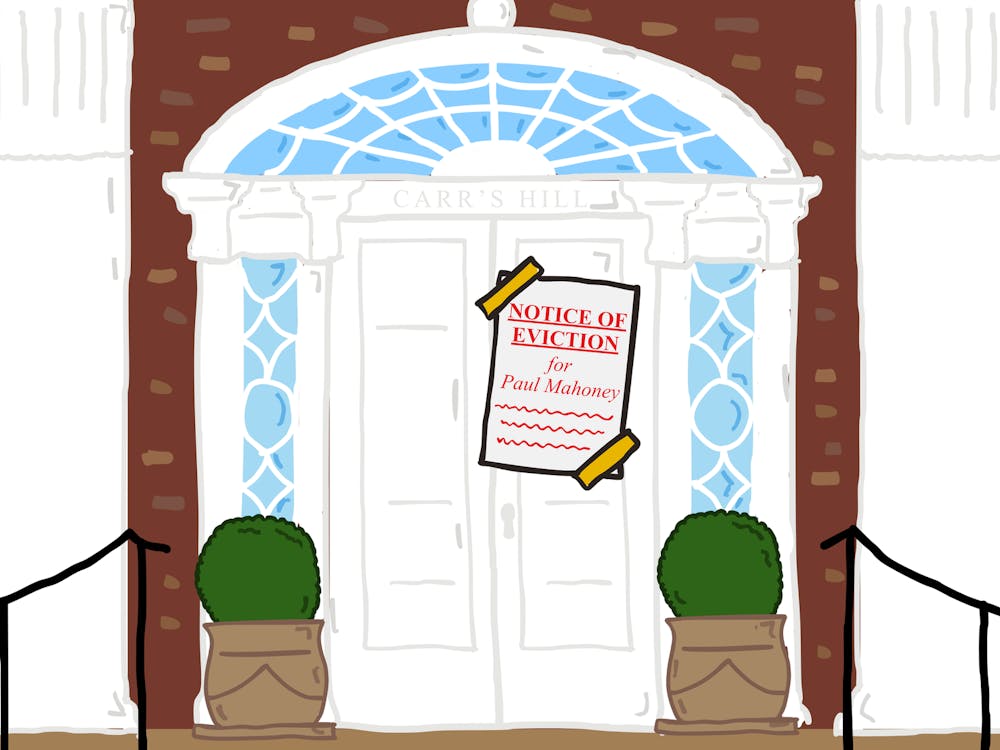Editor’s note: This article is a humor column.
In an announcement Monday, the University assigned a new mandatory online training module to prepare students for the return to life on Grounds for fall 2026. The module, named “Strategic Nodding and Eye Contact in Lectures” — or SNECL — intends to teach students how to be engaged scholars and utilize strategic laziness to ease their way to the top.
Much like its familiar counterparts — the Honor Module, the Alcohol Education Module and the Preventing and Addressing Discrimination, Harassment and Retaliation Student Module — this new course will live on the Student Information Services Platform, embedded somewhere between Degree Progress and an external link to Stellic that only functions on Tuesdays.
The University’s School of Education and Development reviewers called this module “the second best thing to happen to college education since the first best thing.” Although it will not be implemented until next fall, the University revealed the format of the SNECL module, breaking them down into five highly impactful sections.
1. Faking a Reading With Confidence — Learn advanced techniques in skipping pages and making vague but effective statements like “I just thought the author was really brave”
2. Seat Selection Science — A masterclass in choosing the optimal location for invisibility from the TAs and professor
3. Looking Interested While Mentally Elsewhere — Featuring eye contact hacks, nodding drills and a bonus segment on how to fake-write notes while actually doodling
4. Surviving No Electronics Classrooms — Fun activities to get your mind off of readings and long lectures
5. Emailing Professors Persuasively — Learn how to miss class without using up your excused absences
In response to growing concerns over student performance, the University is seeking to preserve its academic prestige and US News ranking without making any substantive changes to its curriculum. Karen Buzzkill, newly appointed Associate Interim Vice Liaison for Student Acceptable Behaviors, is credited with creating this new module.
“As the University’s reputation grows,” said Buzzkill, “We want to ensure students are equipped with the tools they need to maintain our work hard, play hard culture — without, you know, actually having to work hard.”
While previous modules have attempted to instill values like personal integrity, mutual respect and legal compliance, the University realized these trainings were equipping students with the ability to act like functional members of society, but not helping University’s national rankings.
Students have long complained about being forced into Engagements courses — classes with little to no relevance to their interests. Instead of addressing these frustrations, the University has decided the real problem is that students simply don’t know how to look engaged. Nota Reeder, third-year College student and English major, shared her thoughts.
“There has been such a large focus on students getting skills to be good people, but what about being able to sit through a 75-minute lecture about Shakespeare without looking bored?” Reeder said.
This is where the new module comes in.
Completion time for the SNECL module can take anywhere from three to six hours depending on the University’s SIS system, your Wi-Fi strength and how many times you accidentally close the tab.
Student reaction to the announcement has been consistently negative, with many lamenting the addition of another module that may only serve a performative purpose. Many feel the University is seeking superficial honors rather than student transparency. Second-year College student Barley Moonshine expressed frustration at the module being another administrative obstacle for students.
“I was already flagged during the Alcohol Education module after accidentally being honest about how much I drink during the week,” Moonshine said. “They told me to stop inflating their data.”
The module will not be required for student-athletes, as further classroom disengagement could risk drawing unwanted attention to the University’s already creatively interpreted admissions standards for athletic recruits.
Buzzkill hopes this new training will empower students to thrive in the classroom — or at least look like they are from a distance. After all, as the University continues to climb national rankings, it’s not about what you’ve learned, but whether you can maintain steady eye contact while nodding every 45 seconds. And if that’s not academic excellence, what is?







